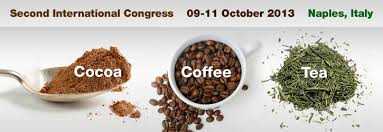Hofmann T. Chair of Food Chemistry and Molecular Sensory Science, Technische Universität München, Lise- Meitner-Strasse 34, D-85354 Freising-Weihenstephan, Germany
E-mail: thomas.hofmann@tum.de
In addition to its stimulatory effect, the wide popularity of a freshly prepared roast coffee beverage is mainly based on its pleasant, attractive overall flavor including a balanced sour and bitter taste as well as the characteristic crema.
Although multiple studies have been targeted towards the molecules involved in aroma stability, bitter taste, and crema formation, the underlying chemical transformations leading to the sensorially active and technofunctional components determining coffee quality remain largely unknown.
In order to bridge the gap between pure structural chemistry and sensory analysis and to rate the coffee components according to their relative impact on aroma stability, bitter taste and crema formation, various techniques of molecular sensory science were applied on roasted coffee as well as on thermally processed model precursor mixtures.
Activity-guided fractionation, followed by chromatographic purification, LC/MS and NMR spectroscopic as well as synthetic studies led to the unequivocal identification of the key molecules determining aroma stability and contributing to bitter taste and crema formation.
The lecture will cover a wide range of analytical tools used to molecularize sensory and technofunctional properties of roast coffee and will discuss the network of reaction cascades driving the quality of a coffee beverage.


















